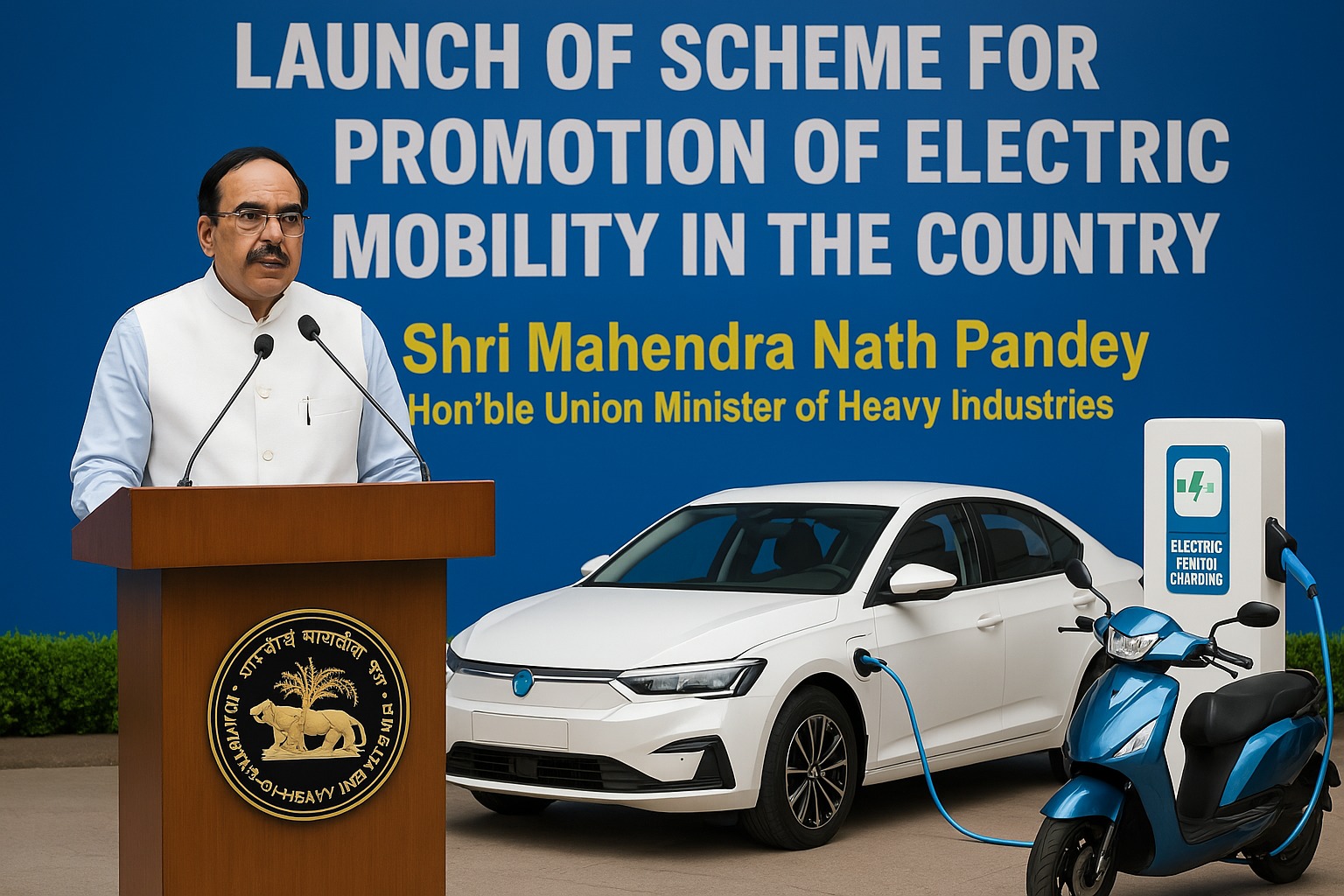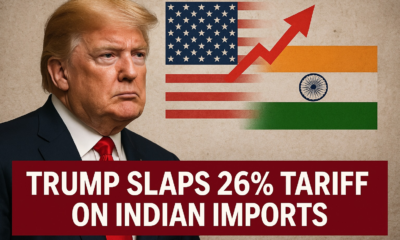Auto
India’s EV Push Gets a Boost with New ₹5,000 Cr Government Incentive Scheme
The Indian government has launched a fresh ₹5,000 crore EV incentive scheme under the revamped FAME policy, aiming to boost local manufacturing, battery infrastructure, and adoption of electric vehicles across the country.

In a major policy push toward clean mobility, the Government of India has announced a new ₹5,000 crore incentive scheme to accelerate the adoption and production of electric vehicles (EVs). The announcement comes under the updated FAME (Faster Adoption and Manufacturing of Hybrid and Electric Vehicles) policy and is expected to run until 2027.
The new framework is designed to provide direct incentives to automobile manufacturers, support the battery-swapping ecosystem, and enhance EV infrastructure in both urban and rural markets.
According to the Ministry of Heavy Industries, the revamped FAME scheme has three key focus areas:
- EV Manufacturing Support – Subsidies and incentives for OEMs (original equipment manufacturers) to scale up local EV production.
- Battery and Component Localization – Boosting domestic manufacturing of EV components, lithium-ion batteries, and battery packs.
- Charging and Swapping Infrastructure – Grants for developing widespread charging stations and battery-swapping facilities.
The policy is expected to benefit two-wheeler and three-wheeler EV manufacturers like Ola Electric, Ather Energy, and Bajaj, as well as four-wheeler giants like Tata Motors and Mahindra Electric.
This move is part of India’s broader strategy to reach 30% EV penetration by 2030 and cut its oil import bill while reducing carbon emissions. Industry experts believe the new incentives will bring fresh momentum to the EV ecosystem, particularly after the expiry of earlier subsidies and confusion around policy continuity.
“We welcome this step—it gives clarity and confidence to both manufacturers and consumers,” said a spokesperson from the Society of Manufacturers of Electric Vehicles (SMEV).
Additionally, state governments are expected to align their EV policies with the center’s revised roadmap, creating a pan-India framework for EV deployment. This comes at a time when global EV brands like Tesla and VinFast are preparing for their India entry, and local startups are gaining ground in battery innovation and mobility-as-a-service (MaaS) models.
With this ₹5,000 crore push, India is aiming to not only boost sales of electric vehicles but also create lakhs of green jobs, establish a resilient supply chain, and become a manufacturing hub for clean mobility solutions.
-

 Uncategorized10 months ago
Uncategorized10 months agoRanveer Brar in conversation with Shantanu Prakash | Business Class
-

 Business4 weeks ago
Business4 weeks agoMedia in Meltdown: Inside the Financial Freefall of India’s Newsrooms
-

 Business1 month ago
Business1 month agoIndia and U.S. Join Forces to Build Semiconductor Fabrication Hubs for Strategic Tech Leadership
-

 Business1 month ago
Business1 month ago‘Frankenstein’ Laptops Rise in Delhi’s Repair Markets as Budget Tech Finds New Life
-

 Business1 month ago
Business1 month agoTrump Slaps 26% Tariff on Indian Imports, Triggering Tensions in Indo-U.S. Trade Ties
-

 Education2 weeks ago
Education2 weeks agoNEET UG 2025 Admit Cards Released by NTA — Here’s How to Download
-

 Education1 month ago
Education1 month ago13 Deeksha Vedantu Students in Karnataka Top 10 Ranks
-

 Tech1 month ago
Tech1 month agoIndia Unveils $2.7 Billion PLI Scheme to Boost Electronics Manufacturing and Job Creation







